|
The Greenest Building is Already Built
A Lecture on Adaptive Reuse with Diane Kane
May/June 2025
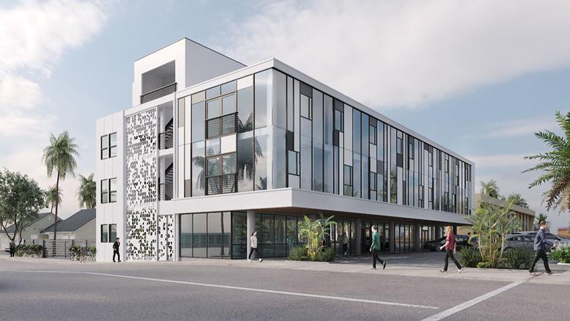 Nautilus Professional Building converting to luxury apartments in La Jolla. Courtesy Murfey Company
Join the dynamic architectural historian and preservationist Diane Kane as she explores the transformative potential of adaptive reuse. Using San Diego case studies, Diane will show how repurposing underused buildings, such as former offices, warehouses, and aging commercial spaces, can meet today’s pressing housing needs, foster community resilience, and advance sustainability goals.
In celebration of Historic Preservation Month, SOHO invites you to this timely and vital free lecture on Saturday, May 31, at 11am via Zoom (Register now). Adaptive reuse is a powerful and underutilized tool for combatting San Diego’s housing, climate, and affordability crises.
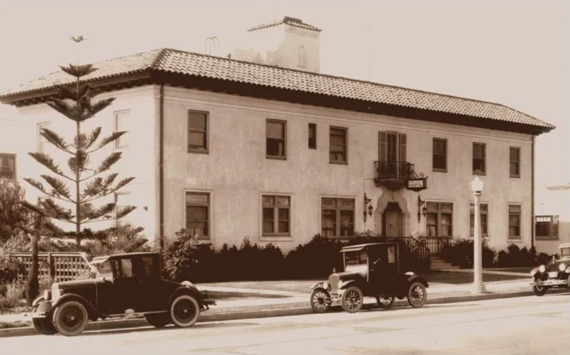 The original Scripps Memorial Hospital is pictured when it opened in 1924 at 464 Prospect St. |
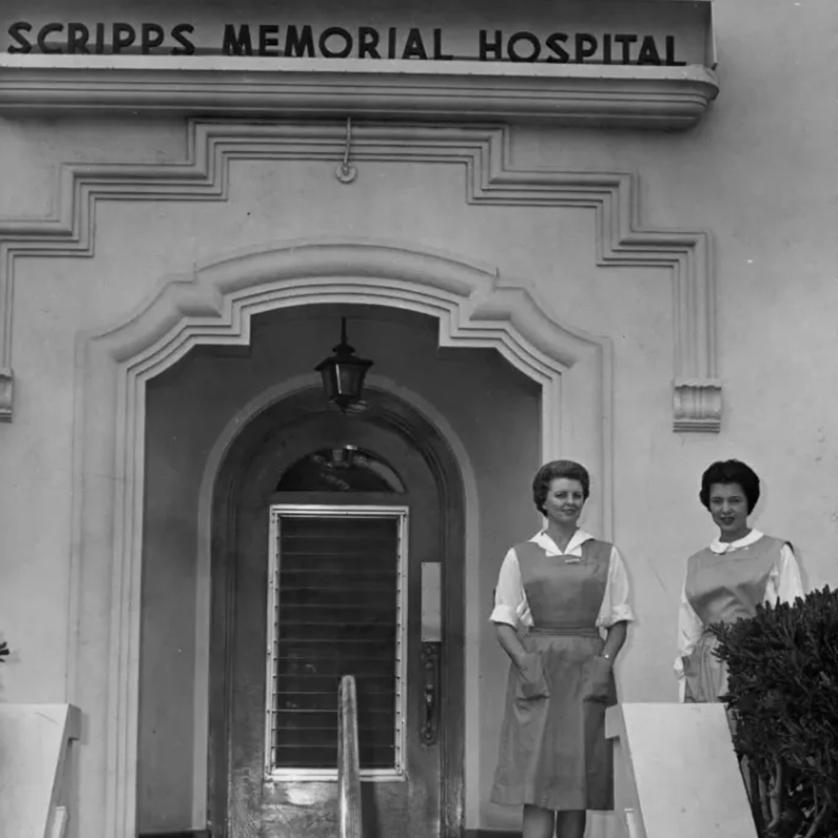 Scripps Memorial Hospital is celebrating its centennial this month. All historic photos courtesy La Jolla Historical Society |
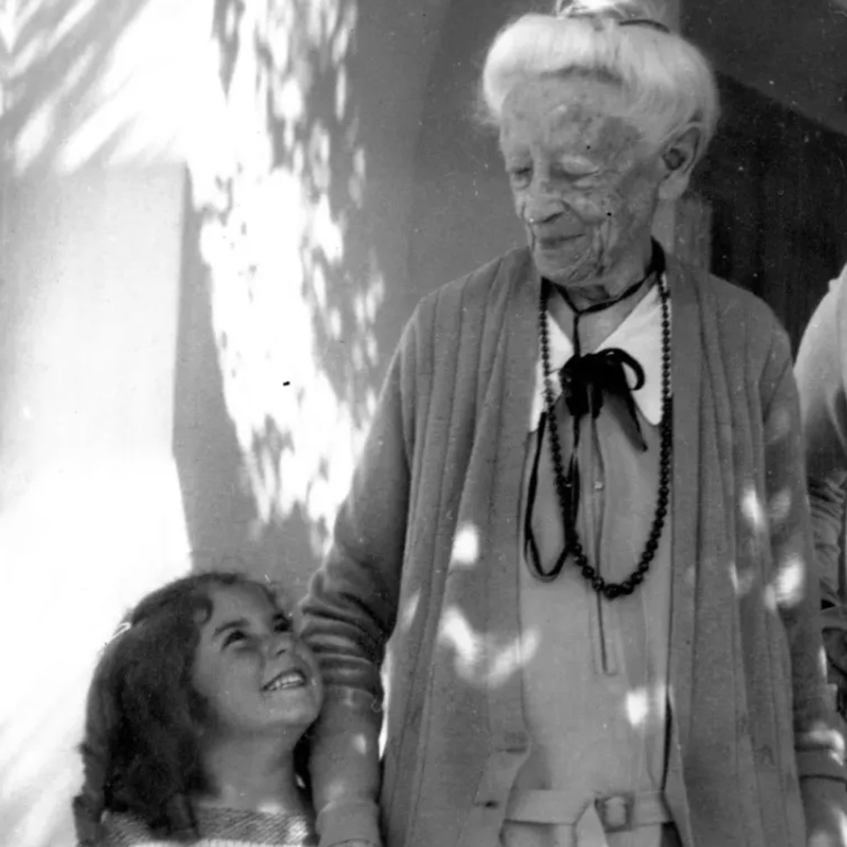 Ellen Browning Scripps (right) was the namesake of Scripps Memorial Hospital. |
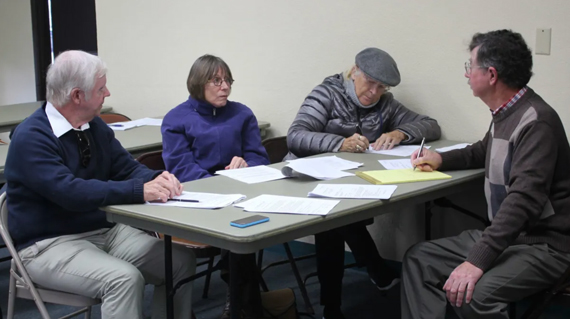 Ragsdale, Diane Kane, Angeles Liera and pro tem chair Mike Costello discuss condo conversion projects. Photo by Marí José Durán |
As San Diego grapples with these overlapping crises, one proven solution stands hidden in plain sight: the adaptive reuse of older buildings. It’s a winning and popular strategy, working with what we already have: revitalizing older buildings to serve new purposes. Wise property owners are already making this work, and doing so more affordably, more sustainably, and more equitably than the alternatives—demolition and new construction, both of which incur heavy environmental, social, and cultural costs.
Using local examples, Diane will unpack the potential of adaptive reuse to meet urgent housing needs, stimulate economic growth, and reduce environmental harm, all while preserving the history, character, and cultural memory embedded in our built environment.
The Greenest Building Is the One That’s Already Built
Demolishing buildings only to replace them with new ones is not only wasteful, it’s destructive. Buildings account for nearly 40% of global carbon emissions, and new construction comes with steep environmental costs.
Adaptive reuse, on the other hand, conserves embodied energy—the total energy it took to build the structure in the first place—and significantly reduces landfill waste.
By keeping existing buildings in use, we minimize our built environment's carbon footprint. Reuse avoids displacing residents, keeps communities intact, and can revitalize entire neighborhoods without erasing their history.
The City of Los Angeles has created more than 12,000 downtown housing units through its Adaptive Reuse Ordinance, which the City Council recently voted to strengthen and broaden for structures at least 15 years old. In March, 2025, Pasadena adopted an Adaptive Reuse Ordinance aimed at streamlining the conversion of commercial buildings to housing while preserving historic resources.
Yet adaptive reuse remains underused in San Diego. What’s needed is a shift in mindset and policy, recognizing older buildings not as obstacles but as opportunities. With the right incentives, streamlined permitting, and a strong preservation ethic, adaptive reuse can become a powerful, central tool in our city’s planning and climate response.
Preservation Is Progress
At its heart, historic preservation isn’t about stopping time. It’s about giving buildings new life, aligning heritage with innovation, and crafting a city that honors its past while meeting the needs of the present and future.
Diane Kane’s talk will provide the facts, context, and inspiration needed to reimagine preservation as a dynamic force in urban planning. Whether you’re a housing advocate, planner, preservationist, or concerned citizen, this is a must-attend event that connects the dots between the buildings we save and the future we build.
Diane will highlight successful local examples and discuss:
- Why reuse is the greenest solution
- How adaptive reuse avoids displacing people and preserves community character
- Historic preservation's role in sustainable development
- What policy shifts could make adaptive reuse a mainstream strategy in San Diego
Don't miss this talk if you're interested in the future of our city. We welcome everyone, from housing advocates and planners to engaged citizens and, of course, preservationists.
This lecture is FREE. Register now to join the conversation via Zoom on May 31 at 11am.
BACK to the table of contents
|
2025
2024
2023
2022
2021
2020
2019
2018
2017
2016
2015
|








